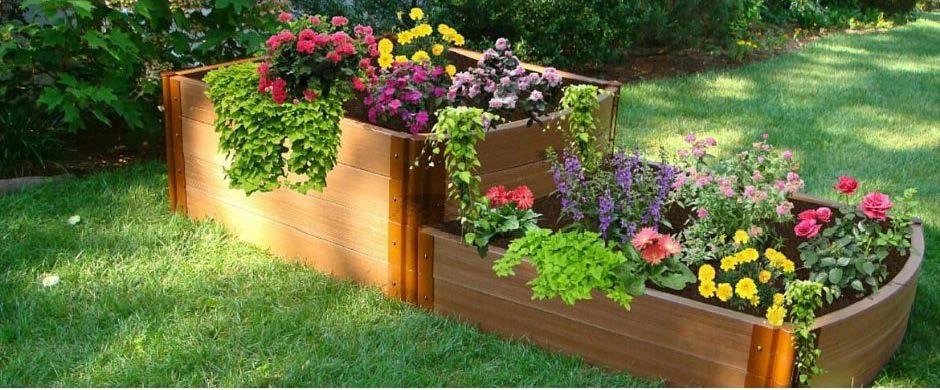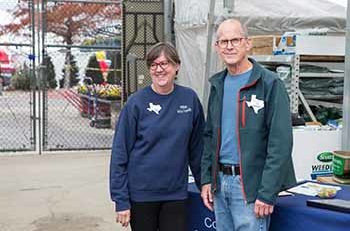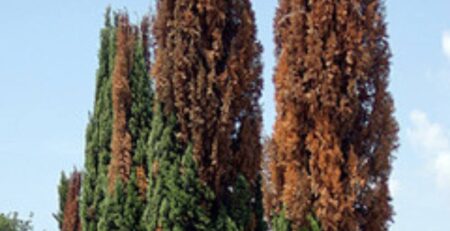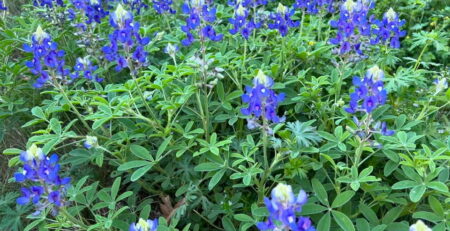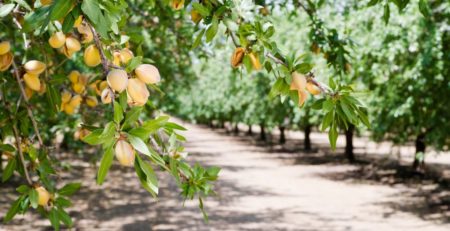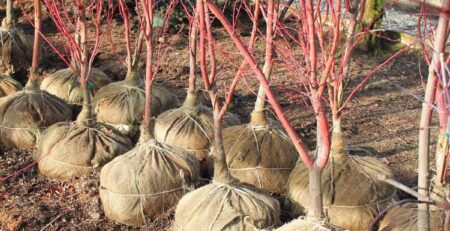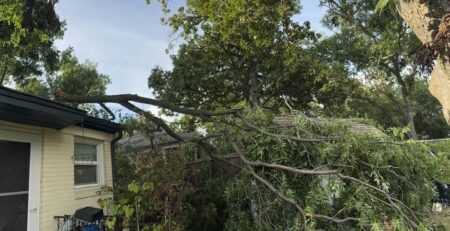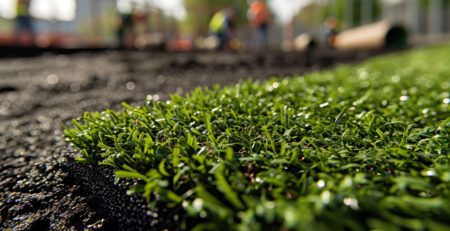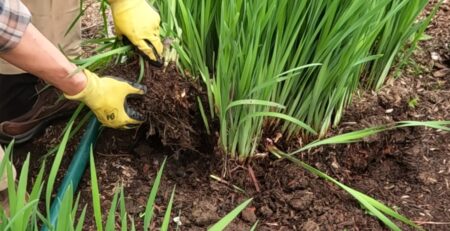Which Type of Soil is Best for Raised Beds?
There are two basic approaches when choosing soil for a raised bed. The first is to utilize mineral based soil and the second is to choose a soilless product. Both can work if you understand the nature of the growing medium.
Native soils are composed of minerals and organic materials. It is the mineral component that is the backbone of the soil and determines its texture, whether it is sandy, silty, or clayey. Many bagged products labeled “garden soil” or “raised bed soil” do not contain a mineral component but consist entirely of organically derived ingredients, such as peat moss, wood products and compost. A product that consists solely of organic material will perform differently from a product with a mineral component.
Most Extension sources recommend a mineral based soil for a permanent raised bed. This article from Rutger’s Cooperative Extension explains,
“For permanent raised beds, native mineral soils amended with small amounts of clean sourced, well-rotted composts can often provide an ideal growing medium for plants. Blending a quality compost into the mineral soil will help increase the overall depth of the beds while improving aeration and nutrient moisture retention. These mineral soils will tend to maintain their volume after initial settling, proper porosity for drainage and aeration, and nutrient holding capacity that are qualities critical for healthy roots.” Rutgers Article – Soil for Raised Beds
Mineral soils are usually sold in bulk and may be purchased from specialized vendors, landscape supply companies or even garden centers. Try and buy from a reputable vendor who can back their product with a soil test report or detailed content of the product. Washington State University warns to watch out for soil that seems excessively sandy. In this case, the product you are purchasing may be what is referred to as “landscaping fill,” which consists of sand and organic matter. This result is a mix that drains water well but dries out more quickly than most native soils. If this is your only option, you can still garden successfully, just understand you may need to water more frequently and may need to mix in additional organic matter.
Washington State Raised Beds Fact Sheet
For small raised beds, or if mineral soil is not an option, you can use products formulated especially for raised garden beds. These products will have labels such as “Raised Bed Soil,” “Raised Bed and Container Mix,” and “Raised Bed and Garden Soil.” Although labeled as soil, in reality, most of these products consist solely of organic material and filler. With these products, your raised bed will function more as a large container. This type of media will drain quickly and dry out more quickly than mineral based soil; it will also settle more quickly. When products with high organic content are used, they should be refreshed or replenished on an annual basis to prevent nutrient deficiencies and degradation of organic material.
Because the pH and nutrient content of a purchased soil may be unknown, consider performing a soil test to help identify nutrient imbalances which may require the addition of fertilizers or other soil amendments. https://soiltesting.tamu.edu/ . Expect a period of trial and error as you get your bed up and running.
If you want to make your own soil mix, Alabama Cooperative Extension has a recipe here – Alabama Extension Raised Bed Gardening
Some additional resources:

